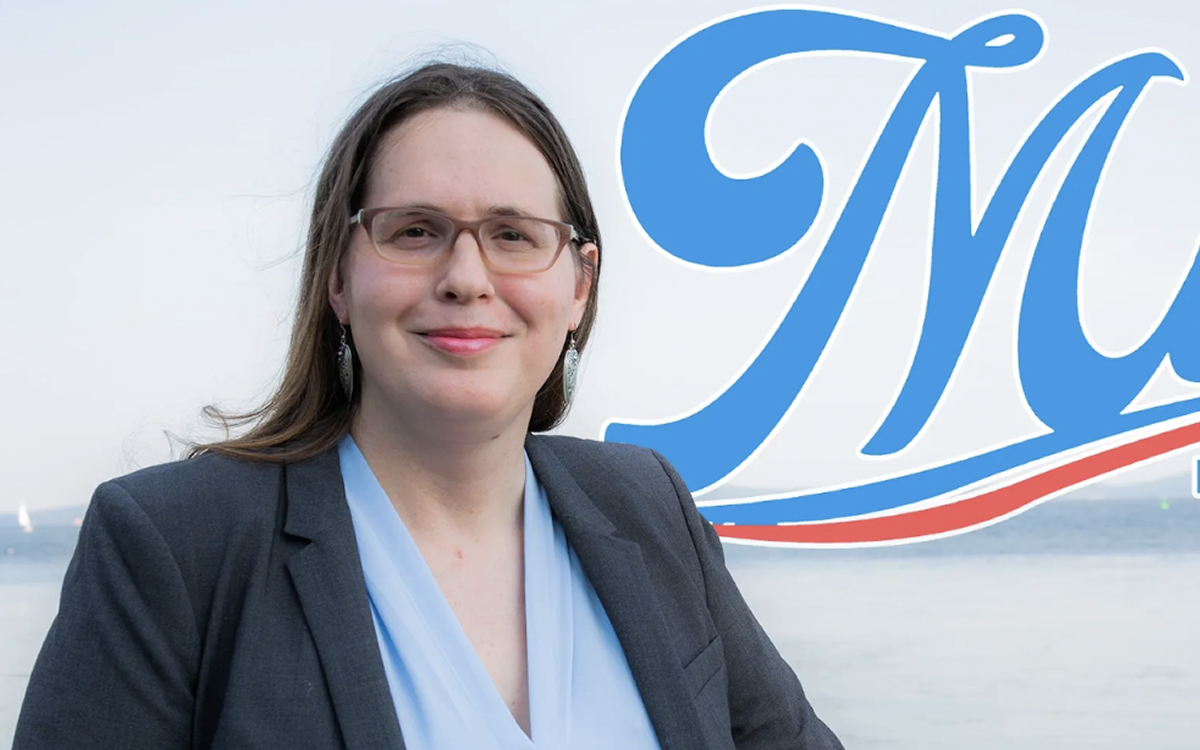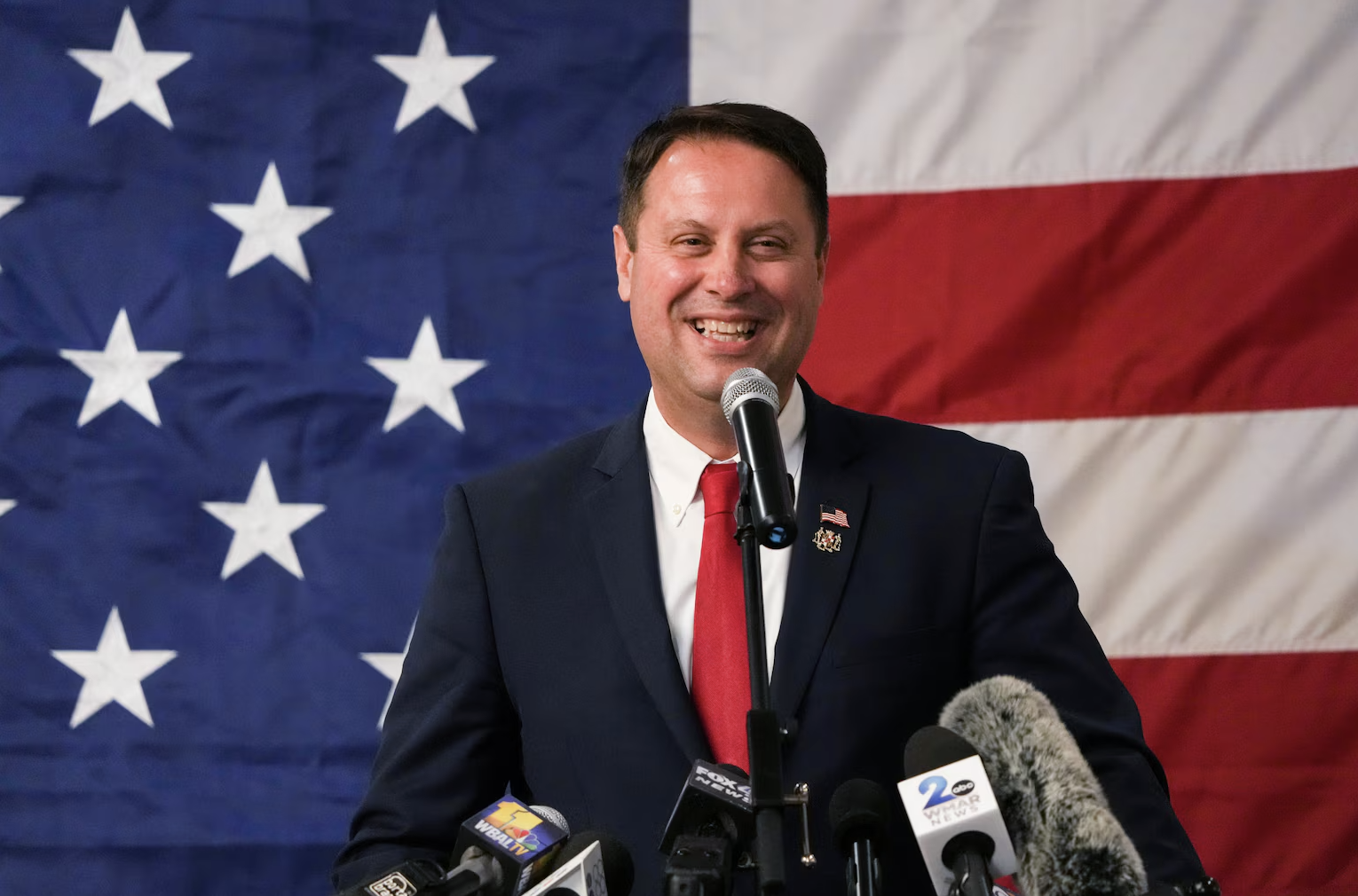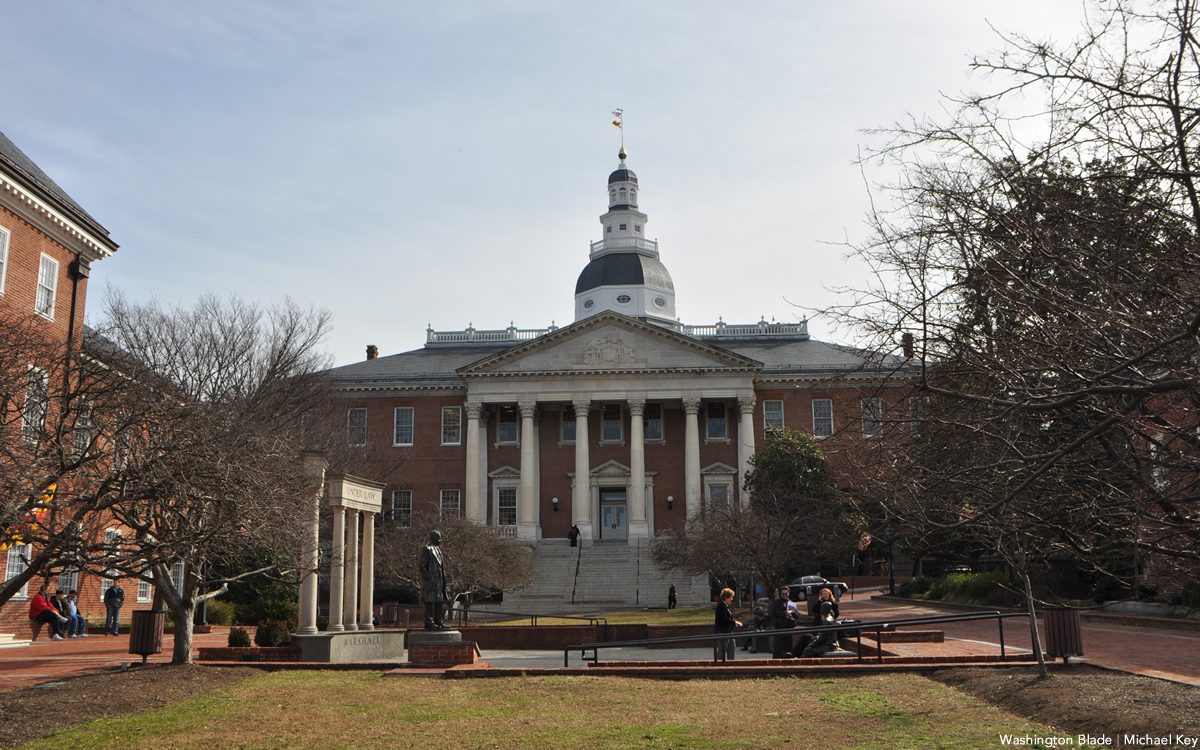Maryland
Transgender veteran once again running for Congress in Md.
Mia Mason is seeking Congressman David Trone’s seat

Transgender military veteran Mia Mason announced July 9 that she is running for Maryland’s 6th Congressional District in the 2024 cycle.
This is her third time running for Congress, as she also ran for Maryland’s 1st Congressional District in 2020 and 2022. Mason, if elected, would be Maryland’s first openly LGBTQ member of Congress and the first trans military veteran in Congress.
Delaware state Sen. Sarah McBride, who is also trans, is running for Congress in her state. She and Mason would be the first openly trans women in Congress if they were to win their respective races.
Incumbent Democrat David Trone announced earlier this year that he is running for Maryland’s open U.S. Senate seat, leaving the Democratic primary open. State Del. Joe Vogel (D-Montgomery County), who also hopes to be Maryland’s first openly LGBTQ member of Congress, is one of the five other candidates who are seeking the Democratic nomination.
“I’m a military service member who has served my country and I’ve had to fight for equity and equality,” Mason told the Washington Blade during a recent interview. “I wish to continue that fight in Congress by becoming the first trans military veteran in Congress.”
Mason said that one of the key issues of her campaign is equal access to health care for Marylanders, especially her fellow veterans.
“I used to be able to go to D.C. and Walter Reed, I used to be able to go to the Baltimore VA, but unfortunately, I’m having to go to Martinsburg, W. Va., like many of our other military veterans, so we should expand our health care here in Frederick,” Mason said. “I want to make sure that we’re able to take care of everybody and that includes the folks over in Washington County and Allegany County, that they can get to somewhere when they need affordable health care.”
Mason mentioned the importance of expanding the role of being in Congress to making sure that the voices of constituents are heard, and that action is taken to address them.
“I think speaking about [constituents] personally, hearing their stories and recording that into the House records on the House floor is one of the most impactful things, so that regardless of what happens at the end of the day, their name, their story, their issues are heard and it’s recorded for the Library of Congress that will live longer than all of us,” Mason said. “And it will be on record because I was able to answer their questions and deliver a message and hopefully a passing bill or piece of legislation that will get to the president’s desk that will directly impact that local community.”
Mason also mentioned curbing gun violence in Montgomery County, combatting the effects of climate change in Maryland and expanding green jobs in the state as key parts of her platform as well.
“We want to make sure that the microgrids and solar power and wind power are available to us and that we actually get the credits that the state is providing and provide the federal subsidies to the state to make sure that we can continue to grow these green jobs for our communities,” Mason said.
Her campaign has launched a unique way for constituents to get to know Mason and her team by providing a phone number for voters to call Mason directly. By calling 410-94-MASON voters can talk to Mason about their concerns and ask her any questions.
“I want to be known as the candidate who answers the phone,” Mason said. “By calling the number, voters can talk to me directly.”
Maryland
4th Circuit dismisses lawsuit against Montgomery County schools’ pronoun policy
Substitute teacher Kimberly Polk challenged regulation in 2024

A federal appeals court has ruled Montgomery County Public Schools did not violate a substitute teacher’s constitutional rights when it required her to use students’ preferred pronouns in the classroom.
The 4th U.S. Circuit Court of Appeals in a 2-1 decision it released on Jan. 28 ruled against Kimberly Polk.
The policy states that “all students have the right to be referred to by their identified name and/or pronoun.”
“School staff members should address students by the name and pronoun corresponding to the gender identity that is consistently asserted at school,” it reads. “Students are not required to change their permanent student records as described in the next section (e.g., obtain a court-ordered name and/or new birth certificate) as a prerequisite to being addressed by the name and pronoun that corresponds to their identified name. To the extent possible, and consistent with these guidelines, school personnel will make efforts to maintain the confidentiality of the student’s transgender status.”
The Washington Post reported Polk, who became a substitute teacher in Montgomery County in 2021, in November 2022 requested a “religious accommodation, claiming that the policy went against her ‘sincerely held religious beliefs,’ which are ‘based on her understanding of her Christian religion and the Holy Bible.’”
U.S. District Judge Deborah Boardman in January 2025 dismissed Polk’s lawsuit that she filed in federal court in Beltsville. Polk appealed the decision to the 4th Circuit.

By PAMELA WOOD | Dan Cox, a Republican who was resoundingly defeated by Democratic Gov. Wes Moore four years ago, has filed to run for governor again this year.
Cox’s candidacy was posted on the Maryland elections board website Friday; he did not immediately respond to an interview request.
Cox listed Rob Krop as his running mate for lieutenant governor.
The rest of this article can be found on the Baltimore Banner’s website.
Maryland
Expanded PrEP access among FreeState Justice’s 2026 legislative priorities
Maryland General Assembly opened on Jan. 14

FreeState Justice this week spoke with the Washington Blade about their priorities during this year’s legislative session in Annapolis that began on Jan. 14.
Ronnie L. Taylor, the group’s community director, on Wednesday said the organization continues to fight against discrimination against people with HIV/AIDS. FreeState Justice is specifically championing a bill in the General Assembly that would expand access to PrEP in Maryland.
Taylor said FreeState Justice is working with state Del. Ashanti Martinez (D-Prince George’s County) and state Sen. Clarence Lam (D-Arundel and Howard Counties) on a bill that would expand the “scope of practice for pharmacists in Maryland to distribute PrEP.” The measure does not have a title or a number, but FreeState Justice expects it will have both in the coming weeks.
FreeState Justice has long been involved in the fight to end the criminalization of HIV in the state.
Governor Wes Moore last year signed House Bill 39, which decriminalized HIV in Maryland.
The bill — the Carlton R. Smith Jr. HIV Modernization Act — is named after Carlton Smith, a long-time LGBTQ activist known as the “mayor” of Baltimore’s Mount Vernon neighborhood who died in 2024. FreeState Justice said Marylanders prosecuted under Maryland Health-General Code § 18-601.1 have already seen their convictions expunged.
Taylor said FreeState Justice will continue to “oppose anti anti-LGBTQ legislation” in the General Assembly. Their website later this week will publish a bill tracker.
The General Assembly’s legislative session is expected to end on April 13.
-

 Baltimore5 days ago
Baltimore5 days ago‘Heated Rivalry’ fandom exposes LGBTQ divide in Baltimore
-

 District of Columbia5 days ago
District of Columbia5 days agoDeon Jones speaks about D.C. Department of Corrections bias lawsuit settlement
-

 Real Estate5 days ago
Real Estate5 days agoHome is where the heart is
-

 European Union5 days ago
European Union5 days agoEuropean Parliament resolution backs ‘full recognition of trans women as women’




















